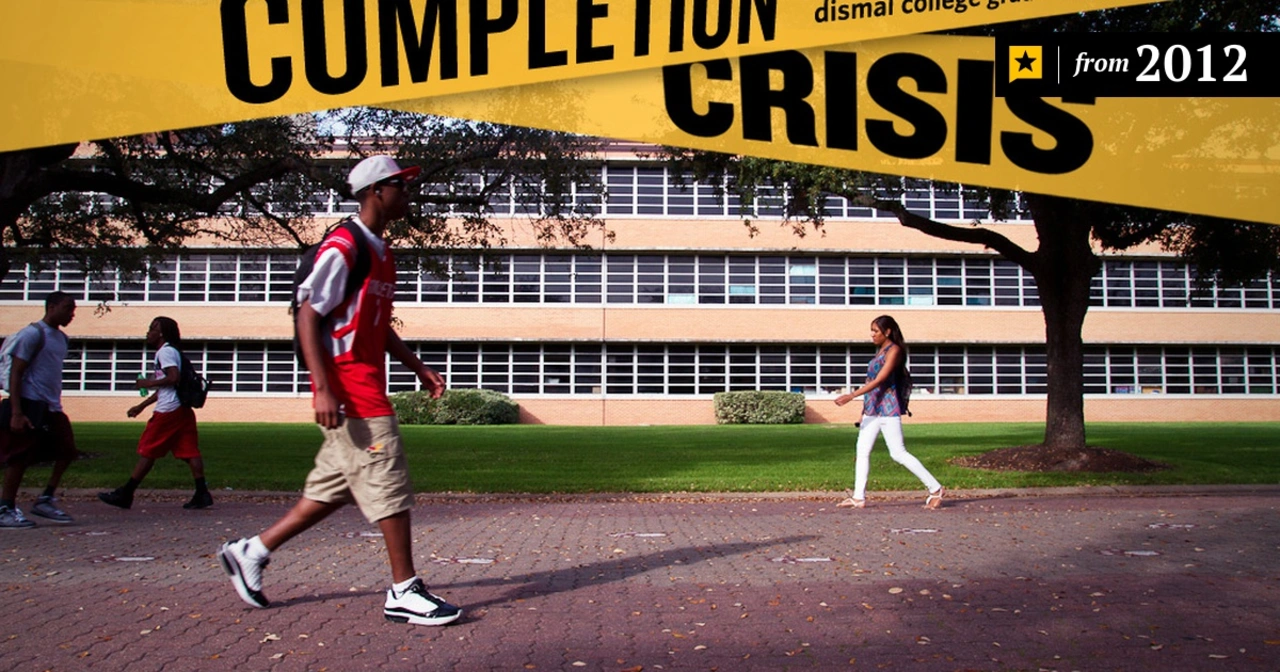Is a low graduation rate at a university a bad sign?

Exploring the Causes of Low Graduation Rates at Universities
Universities have the challenging goal of preparing their students for future success. One key indicator of a university’s success is its graduation rate. Low graduation rates can be a sign that a university is failing its students, so it is important to explore the underlying causes.
One potential cause is a lack of resources. Universities with fewer resources may struggle to provide a quality education and support system for students. This lack of resources can lead to a decrease in faculty, larger class sizes, and fewer educational opportunities. This can make it more difficult for students to succeed, leading to a lower graduation rate.
Another potential cause is an inadequate curriculum. Universities may offer courses that are not comprehensive enough to provide students with the necessary skills to succeed. Students may be unprepared for their future endeavors, leading to a decrease in the graduation rate.
The student body can also play a role in the graduation rate. Universities may have a large population of students who are not academically prepared for university-level work. These students may struggle to keep up with their peers and lack the support needed to succeed.
Universities may also struggle to retain students. Universities may have a high rate of student attrition, which can have a negative effect on the graduation rate. Students may be unable to afford tuition or may not be academically prepared for the rigors of university-level work.
Finally, universities may not be providing students with adequate support. Universities may not be offering enough academic and emotional support to students. This can lead to students feeling overwhelmed and giving up on their studies.
Low graduation rates at universities can be a sign of many underlying problems. Universities should explore these potential causes to ensure that their students are receiving the best possible education and support.
Examining the Impact of Low Graduation Rates on University Reputation
When it comes to judging the success of a university, one of the key metrics is its graduation rate. A university that has a low graduation rate can experience a range of negative consequences, such as a damaged reputation, lower rankings, and reduced funding. Let’s take a closer look at how a low graduation rate can affect a university’s reputation.
Decline in Desirability
A university with a low graduation rate is not as desirable as one with a higher rate. Prospective students may be less likely to apply, as they fear they won’t be able to complete the program. Even if they do decide to apply, they may not be as motivated to stay in the program because they don’t see the same level of success that they would at a school with a higher rate.
Decrease in Prestige
A university with a low graduation rate is often seen as less prestigious than one with a higher rate. This can lead to a decrease in the number of students seeking admission and a decrease in the quality of students accepted. It can also result in a decrease in the university’s ranking, which is based on a variety of factors, including the graduation rate. This can have a significant impact on the reputation of the university.
Reduction in Funding
A low graduation rate can also have a negative impact on the university’s funding. A university with a low graduation rate is often seen as a less desirable investment. As a result, potential donors may be less likely to donate to the university, and the university may be unable to access certain grants and other forms of funding. This can have a significant impact on the university’s ability to provide quality programs and services.
Lack of Support
Finally, a university with a low graduation rate may lack the necessary support to ensure student success. This can include inadequate resources, such as academic and career advising, as well as inadequate student services, such as mental health counseling. Without this support, students may struggle to complete their programs and graduate. This can further damage the university’s reputation.
Conclusion
In summary, a low graduation rate can have a significant impact on a university’s reputation. It can lead to a decrease in desirability, a decrease in prestige, a reduction in funding, and a lack of support. All of these factors can have a negative effect on the university’s success and can lead to a decrease in its reputation.
How to Improve Graduation Rates at Universities: A Guide for Administrators
Graduation rates at universities serve as a key measure of success for both the institution and its students, and it is important for administrators to understand the problem and take steps to improve the rate. A low graduation rate can be a sign of a number of issues, including poor academic advising, lack of resources, and inadequate student support. This guide will outline steps administrators can take to improve graduation rates and help ensure students have the best chance of success.
Identify the Problem
The first step in improving graduation rates is to identify the root causes of the issue. Administrators need to assess the university’s current policies, procedures, and resources to determine what is causing the low graduation rate. It is also important to identify any potential issues that could be contributing to the problem. This can include inadequate academic advising, lack of financial aid, and inadequate student support.
Develop a Plan
Once the root causes of the low graduation rate have been identified, administrators need to develop a plan to address the issue. This plan should include specific strategies to improve the graduation rate. It should include strategies to ensure students have access to the resources they need to succeed, such as financial aid, academic advising, and support services. It should also include strategies to ensure students have access to the resources they need to stay on track, such as tutoring, mentoring, and career counseling.
Implement the Plan
Once the plan has been developed, it is important for administrators to implement it. This includes ensuring that all students have access to the resources they need to succeed. It is also important to provide ongoing support and guidance to students to ensure they stay on track. This can include regular check-ins with faculty, staff, and mentors. Administrators should also monitor the progress of the plan and make adjustments as needed.
Evaluate the Plan
Finally, administrators need to evaluate the plan to ensure it is effective. This includes assessing the effectiveness of the strategies implemented and determining whether they are having an impact on the graduation rate. It is also important to assess how the plan is being implemented and whether any adjustments need to be made. Administrators should also evaluate the resources available to students and ensure they are sufficient to meet their needs.
Improving graduation rates is an important task for administrators, and it requires a comprehensive plan that takes into account the root causes of the issue as well as the resources available to students. By following these steps, administrators can create a plan that will help improve graduation rates and ensure students have the best chance of success.

Write a comment